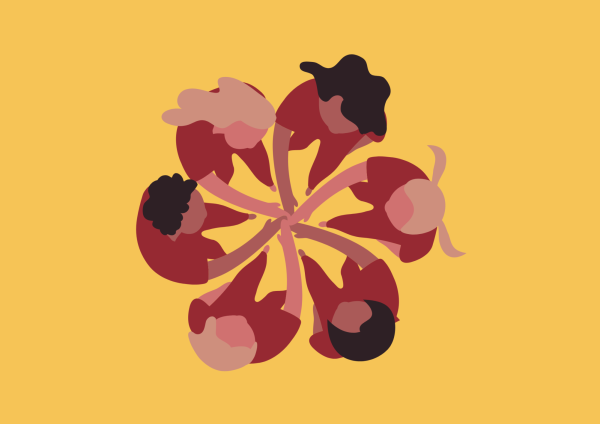Take a mental health break: ways to destress
There are many different ways to destress, and the key to making the most effective use of mental health breaks is to find the most suitable method for yourself. [LAURA HSU/THE BLUE & GOLD]
As exam season approaches, students become increasingly stressed about schoolwork and semester grades. Amidst this stressful period of time, it is important to be more aware of your own mental health condition and to take care of yourself.
Some ways to approach self care is to take mental health breaks. Instead of having long periods of study time, it is a better practice to integrate a break period in between study sessions. A to do this is to follow the pomodoro technique, which is a time management method created by Francesco Cirillo in the 1980s. This method consists of having 25 minute study periods, with short breaks in between.
Another way to destress is to find things that you enjoy doing when you have free time. If you are able to find something that you are passionate about doing, it will allow you to become happier when you spend some time pursuing that passion. Even though this is a busy period, taking a few short breaks while doing something you are passionate about, such as sketching on your iPad, may be an even more effective way to destress.
One way to become more effective in your studies and reduce your stress levels is to find your own way of studying. You will have to experiment with different study methods and find the one that works best for you. Even though you might find it difficult to navigate different studying techniques, this will be an efficient way to approach the material you are studying and reduce unnecessary stress.
The key to taking mental health breaks is to make the most use out of the time that you have for resting. If you spend your time on mindless activities that do not bring joy into your life, you will never truly be able to find a way to relax and destress in a short period of time.

![There are many different ways to destress, and the key to making the most effective use of mental health breaks is to find the most suitable method for yourself. [LAURA HSU/THE BLUE & GOLD]](https://blueandgoldonline.org/wp-content/uploads/2021/12/ways-to-destress-min-900x600.png)
![A collection of college flags. [PHOTO COURTESY OF AMBER HU ('27)]](https://blueandgoldonline.org/wp-content/uploads/2025/05/IMG_5029-600x289.jpeg)

![An SAT word cloud. [PHOTO COURTESY OF WORDCLOUDS]](https://blueandgoldonline.org/wp-content/uploads/2025/05/SAT-600x600.jpeg)
![Collage of banned books, including “The Handmaid’s Tale” by Margaret Atwood. [MINSUN KIM/ THE BLUE & GOLD]](https://blueandgoldonline.org/wp-content/uploads/2025/04/IMG_4274-600x340.jpeg)

Ribhu • Feb 3, 2022 at 2:06 pm
imo, focusing on suggesting more efficient study methods would be more valuable than suggesting means to relax between study periods.
The term ‘mental health breaks’ is vague and arbitrary, and it’s role in students’ lives can easily be exploited as a result. Mental Health Breaks could range from short periods of rest to full rehabilitation periods, and a very small window of the spectrum is feasible in a student’s routine. The value of these ‘breaks’ rests primarily on the needs of the individual, which, of course, vary; this makes the term vague, and the simplistic and almost platitudinal suggestions as to how to implement these breaks, do not help. The priority of the role of these breaks is thus first challenged. Besides, the seemingly charitable nature of ‘mental health breaks’ makes it so easily exploitable. The term is arbitrary: students can take breaks whenever they want, however they want, and thanks to this article, they can justify whatever work ethic they may have thus developed by saying “I was prioritizing my mental health”- it’s not hard to see how easily this charity can be exploited.
These gaping flaws in the concept of ‘mental health breaks’ considered, it would be far more helpful to suggest efficient study methods. A top 5 or 7 list maybe, including the Pomodoro example. It would be productive for such an experienced upperclassman as yourself to show the paths to others, but leave them to decide where to rest on the way. If you’re literally telling them how to relax, you’re regimenting relaxation, and effectively taking the very thing that’s relaxing out of breaks.